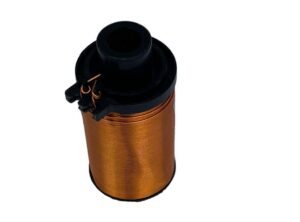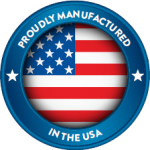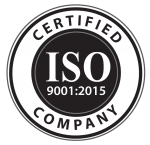Bobbin wound coils are some of the most common electromagnetic coil components used across a wide range of industries and applications.
The bobbin wound configuration features a rigid central core material (generally plastic, glass, special laminated alloys, or phenolic materials) to structurally support the wound coil. The result is a strong, reliable coil winding which is structurally sound and capable of delivering virtually any custom electrical specifications required.
The Drawback of Bobbin Wound Coil Constructions
The major downside of bobbin wound electromagnetic coils is the increased size of the components. When compared to air coils or self-supported coil configurations, which do not require a core support, bobbin wound coils are often larger than their counterparts. The use of bobbin wound coils is therefore impossible in some space-limited applications, such as small electronic devices and microelectronics.
The Most Common Product Applications for Bobbin-Wound Coils
- Bobbin Wound Inductors – Inductors for electronic circuits are commonly manufactured in the bobbin-wound coil configuration. There are many common unique product applications for bobbin wound inductors such as energy storage, power control and regulation, as well as impedance matching.
- Bobbin Wound Transformers – Bobbin-wound coils are also commonly used in the manufacturing of transformers for commercial and residential power delivery. These critical electromagnetic components are responsible for many vital roles in electrical power distribution and transmission, as well as within various electronics devices.
- Bobbin Wound Solenoids – Essentially, solenoids are electromagnetic components used to convert electrical energy into linear motion. Sturdy bobbin-wound coils are commonly used in many different solenoid components including electromechanical actuators, valves, relays, and switches.
- Electromagnetic Coils for Magnetic Sensors – Bobbin wound coils are also commonly utilized in the manufacturing of magnetic sensors, such as inductive proximity sensors and magnetic field sensors. Designed to detect precise changes in magnetic fields, these specialized sensors are increasingly used in the fields of industrial automation, robotics, as well as in common security systems and automotive applications.
Custom Bobbin Wound Coil Windings – Manufactured in the U.S.A.
Located in Fairbury, Illinois, US Cotronics is one of the nation’s leading contract manufacturers of custom electromagnetic coil windings. We produce a wide range of bobbin wound coil products in both standard and custom configurations designed to meet each customer’s unique electrical specifications and packaging requirements.
Founded in 1985, US Cotronics has proudly served for more than 35 years as one of America’s leading bobbin wound coil manufacturers.


